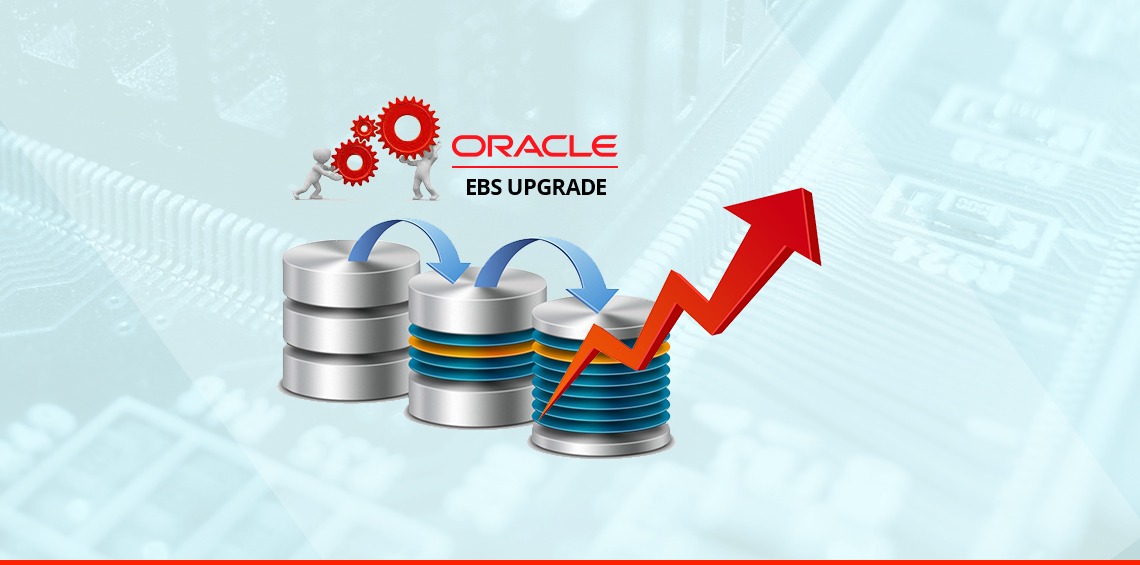What is involved in 12.2.x Upgrade?
Oracle EBS 12.2 is major release with underlying changes for the file system for Database and Applications. Proven technical upgrade path is as follows:

Following are the source environment variables considered in the tailoring of the upgrade approach:
- Operating System Version
- Database version
- Internet Application Server Version
- Number of environments – instances, legal entities, multi-language support, DR, etc.
- Extent of customizations CEMLIs
- Extent of documentation
- Current patching status at each layer of the environment
- Data retention policies
- Archiving and purging strategies
How do you get a handle on the moving parts?
Tool assisted automated Oracle EBS environment assessment is a pre-requisite before embarking on the upgrade journey.
AppsTek Upgrade Methodology and our proprietary Assessment Tool combines skilled specialists, trained in CEMLI inventory, analysis, benchmarking, and upgrade retrofit processes to effectively upgrade your Oracle Applications environment. Our methodologies and tool put effective CEMLI reduction, documentation, and retrofit strategies in place for your Oracle Applications instances to reduce the future costs of upgrades and maintaining your Oracle solutions. We know how to best optimize your investment in Oracle products and can provide your business with tightly integrated, comprehensive, superior services throughout your ownership experience.
Though, we realize there are many upgrade approaches traditional vs CEMLI-first approach, it all depends on the below considerations and unique goals. Many of our clients are taking advantage on the traditional approach using our proven methodology, required time and resources and will depend on:
- Number of EBS modules that has been implemented and in use
- Number of translations in use
- Scope and complexity of your customizations.
- Minimize multiple upgrade timelines. Any approach other than a proven/Oracle recommended upgrade approach will add additional downtime.
- Health of the current 12.1.3 environment. Access to ADOP standards does not exists until 12.2 install is in your landscape
- Number and extent of your integrations (EDI is an example)
- Effort you typically invest in testing major release level changes
- Other system changes you are combining with the upgrade
Our proven methodology provides Oracle Application customers with everything that needs to upgrade with confidence. Leveraging AppsTek unique approach, methodology and CEMLI Assessment framework, we will work with you to:
- Perform an initial CEMLI inventory to determine the exact system customizations.
- Create an initial CEMLI benchmarking report to determine how custom your organization applications are compared to customer peer groups.
- Assess the current software environment and configurations, extensions, modifications, localizations, interfaces and provide recommendations to eliminate customizations using standard functionality.
- Conducts a CEMLI upgrade impact analysis to determine what customizations will be impacted by the upgrade. This can be only achieved using the traditional approach.
- Work collaboratively with your core functional / business users to determine customizations that can be removed from your system during the upgrade process.
- Provide support for CEMLI retrofit activities during your upgrade project.
Our thoughts on CEMLI-first approach:
If you have CEMLIs, then the advocacy is that you would do the CEMLI remediation on source environment, i.e., 12.1.3 and dump it into target environment 12.2.x using ADOP. I would like to take this opportunity and address some of the challenges in this approach:
- Not all CEMLIs are Database objects alone. Some are program scripts, files, workflows, interfaces, etc.
- Oracle does not advocate creating CEMLIs in APPS Schema
- ADOP is for Oracle to update standard objects (Apps and Database) online in APPS Schema not Custom Schema in which CEMLIs should reside.
- Quality? Compromised quality with 2 cycles of testing in source environment which may lead to protracted testing on 3rd cycle
- Time? Add the two cycles of upgrade on 12.1.3 it may come to the same
- Cost? When the timeline elongates, Cost will catch up as well
Applications Database Online Patching (ADOP) is the most important new feature introduced in Oracle EBS R12. 2. It is the ability to patch a running system without having to take the system down for a significant period while the patches are applied. It is incomprehensible to see the remediation on 12.1.3 and validating them with ADOP standards compliance as the CEMLI objects need to work on the 12.2.x programs as well. It may be tricked as an upgrade on 12.2.x behind the scenes before bringing the dump on to 12.2.x environment (not really using ADOP in our opinion). Additionally, it is a huge risk on your current production 12.1.3 environment if the remediated objects (12.2.x) were migrated prior to the upgrade. Even Oracle has not endorsed CEMLI-first approach.
Conclusion
Many clients have not been able to adopt this CEMLI-first approach because of their unique circumstances. Based on our past upgrade experiences, here are the spectrum of circumstances er ran into:
- 5.10.2 or 12.1.3 implementations / upgrades are rushed
- There is no MD50, MD70, BR100 and TE40 documentation
- Web facing external firewall has been pulled back due to challenges in WebLogic vulnerabilities/ monitoring challenges
- There is no data retention policy
- No archiving and purging done since the first go-lice on Oracle EBS
- Challenges in OS, Database, and Internet Application Server upgrades
CEMLI first approach may work on a point release upgrade within 12.2.x but not definitely for a major release upgrade for the following reasons:
- ADOP is available only on 12.2 and these standards cannot be available in 12.1.3 environment
- Among the CEMLIs, Interfaces, Reports, and Workflows are major components in terms of effort. These are the vital few.
- CEMLIs cannot be places in APPS Schema
- It is our belief that with this approach quality will be compromised while violating standards
As a trusted advisor with experiences of similar upgrades, we recommend the proven approach, of course incorporating the time, cost, quality, and technology objectives of our customers.

